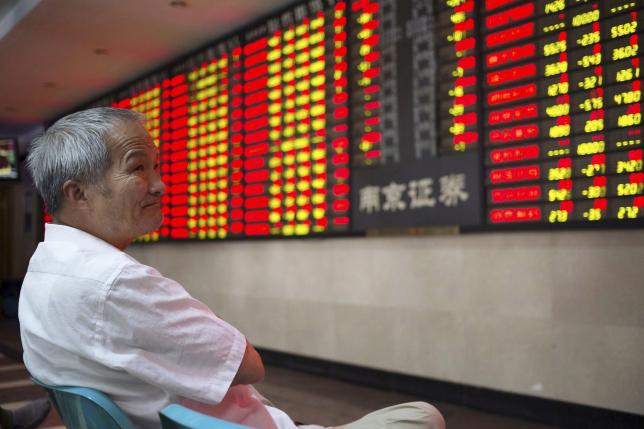China stocks look set for biggest monthly loss in six years
HONG KONG: China stocks fell on Friday and looked set to suffer their biggest monthly loss in nearly six years even as Beijing rolled out a series of support measures and promised to step up efforts to bolster the flagging economy.
Stocks have plunged more than 30 percent since mid-June, threatening further risks to an economy that is expected to post its slowest growth in a quarter of a century this year.
The Shanghai Composite Index fell 1 percent to 3,669.45 points in morning trade. For the month so far, it has slumped 14.2 percent, the biggest monthly drop since August 2009.
The CSI300 index dipped 0.1 percent to 3,812.34.
China CSI300 stock index futures for August fell 0.1 percent to 3,678.6, but was still 133.74 points below the current value of the underlying index, pointing to investor expectations of further losses.
Still, some analysts said a flurry of unprecedented support measures by Beijing in recent weeks may be slowing putting a floor under the market, even if it remains vulnerable to wild daily swings.
"The bottom of the A-share market has gradually been lifted since the previous collapses, from 3,400 points to 3,500 points, and now around 3,600 points," said Tian Weidong, head of reserch at Kaiyuan Securities.
Others, however, say any rebounds may be short-lived as nervous investors will be more quick to take profits on any bounces and worry about when the government will begin to wean markets off support measures.
China's Politburo said Beijing had yet to find new drivers to power its economy at a time when old engines are flagging and has promised to step up "targeted" adjustments to economic policy to foster stable growth, media said on Thursday.
Meanwhile, China's securities regulator said it had restricted 24 stock trading accounts for suspected trading irregularities, and was investigating investors who used automated trading strategies in its stock exchanges, as Beijing intensifies pressure on its financial industry in the wake of the share-price plunge.
In Hong Kong, the Hang Seng index added 0.4 percent to 24,595.51 points.
The Hong Kong China Enterprises Index gained 0.5 percent to 11,191.86.
The index measuring price differences between dual-listed companies in Shanghai and Hong Kong stood at 135.39.
A value above 100 indicates Shanghai shares are being priced at a premium to shares in the same company trading in Hong Kong, and vice versa.
The northbound quota for the Hong Kong-Shanghai Stock Connect, currently set at 13 billion yuan, saw net inflows of 0.90 billion yuan.
Total volume of A shares traded in Shanghai was 17.64 billion shares, while Shenzhen volume was 12.29 billion shares.
Total trading volume of companies included in the HSI index was 0.5 billion shares.






